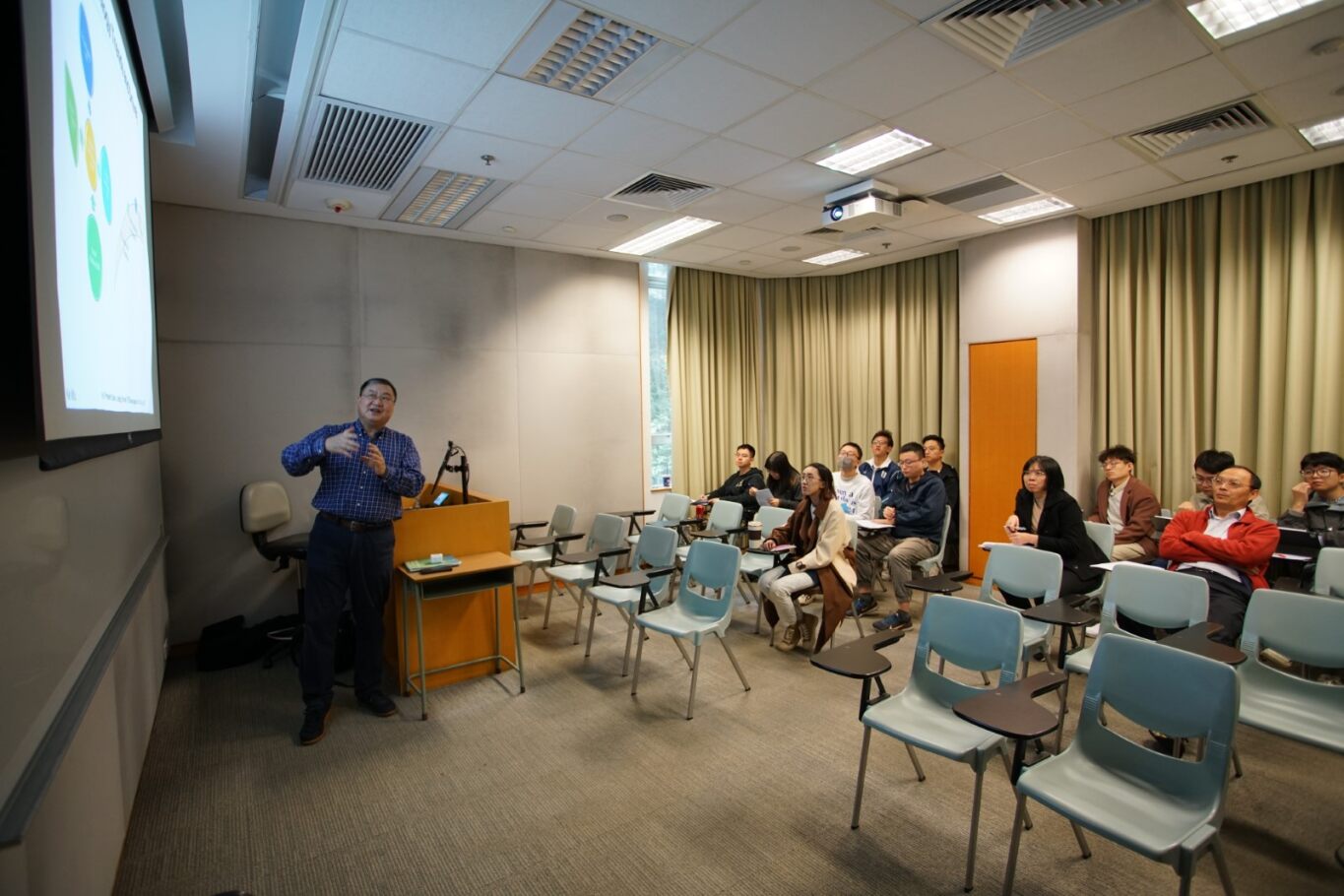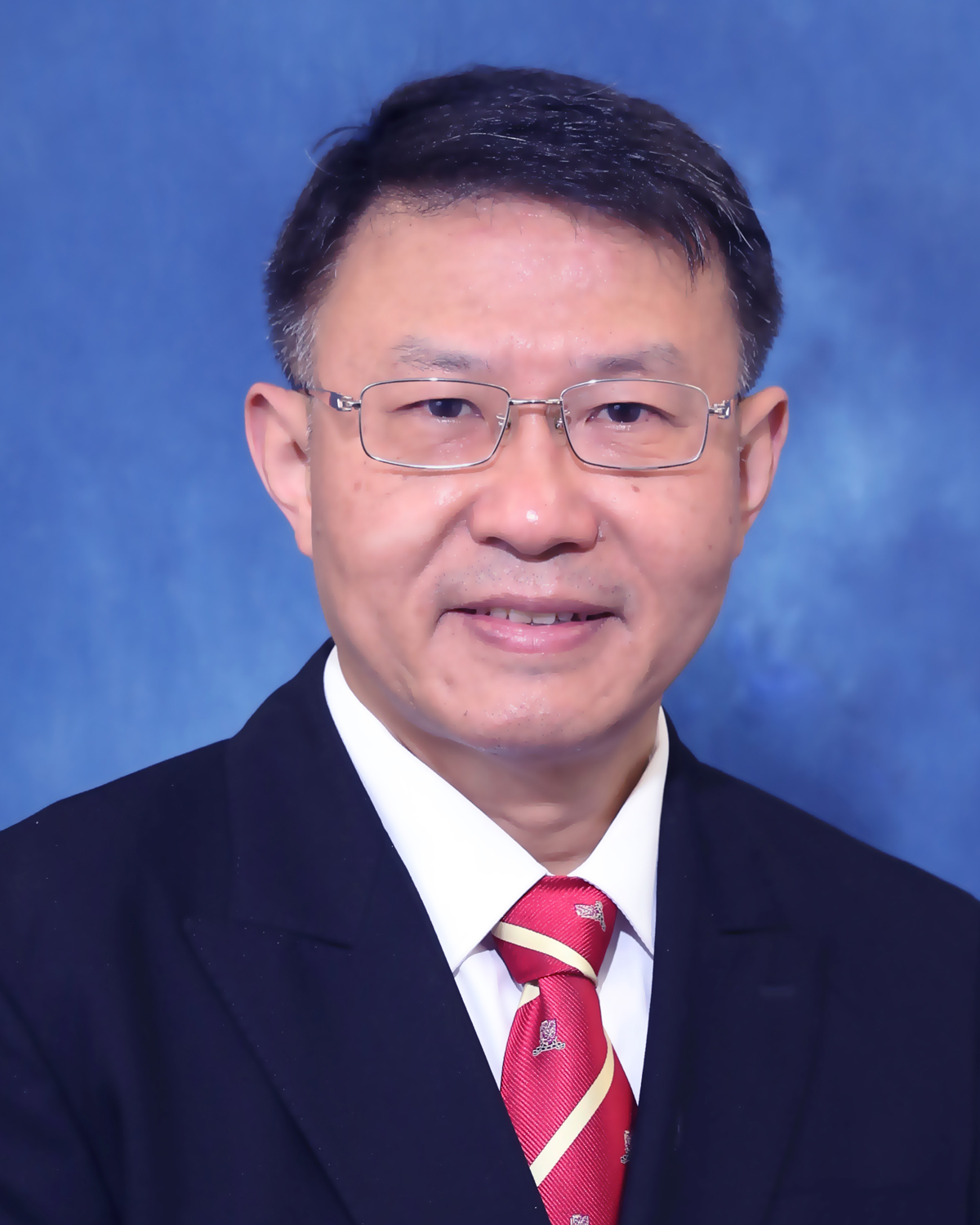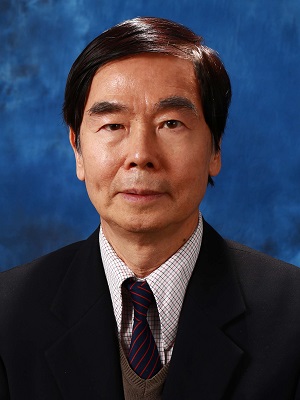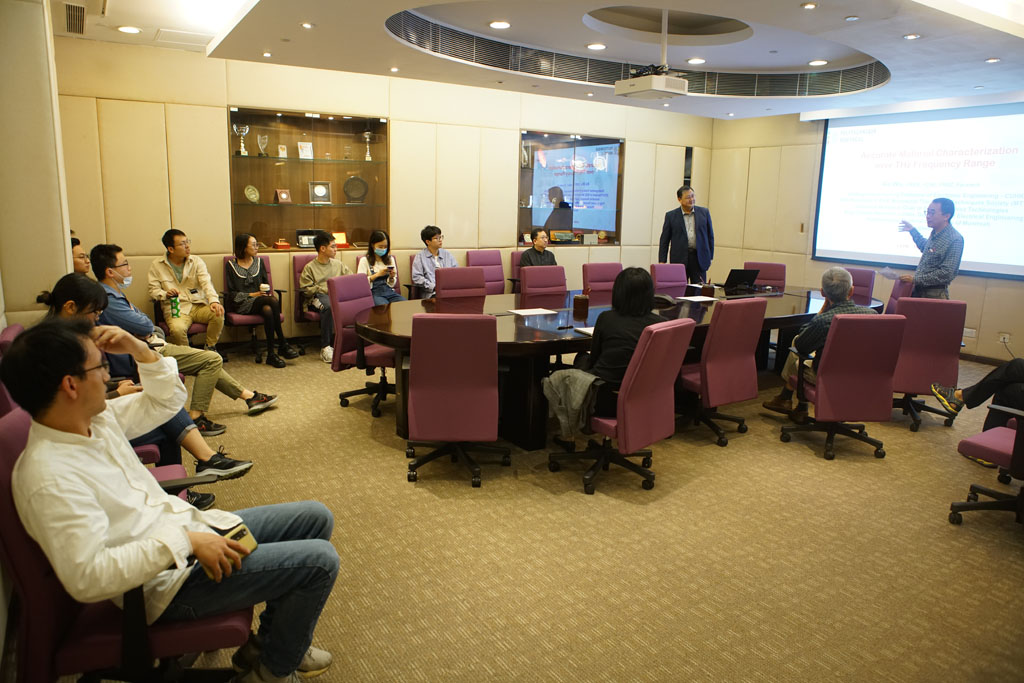Homepage
2021
Professor Tan LEE (co-founder of Vocofy AI) had an interview by Radio 1 of RTHK, about the project on AI voice for patients.
https://www.rthk.hk/radio/radio1/programme/CareForDisabled/episode/929351
Professor Tan LEE (second from right)
Our distinguished visiting professor, Prof. Ke WU from the University of Montreal, Canada, delivers the short course series (SIW Technology for Antenna Systems) to EE colleagues and research students.
| Date: | 20 Dec (Wed) , 21 Dec (Thu) and 22 Dec, 2023 (Fri) |
| Time: | 2:00-5:00 p.m. |
| Place: | ERB402, William M.W. Mong Engineering Building, CUHK |
Abstract
This short course on substrate integrated waveguide (SIW) for antenna systems consists of three parts, which is organized for graduate students and young researchers working in the field of applied electromagnetics and RF/microwave antennas/circuits. The first part is concerned with the introduction and fundamentals of SIW technology for antenna design and developments. The second part is dedicated to the presentation of SIW components and integration techniques for antenna system applications. The third part is a special technical lecture, which discusses the SIW-related state-of-the-art technology developments and advanced system demonstrations for 5G/6G system applications with focus on millimeter-wave and terahertz developments. The total duration for the entire course is about 9 hours, which is delivered over three different periods of time.
Biography
Dr. Ke Wu is the Industrial Research Chair in Future Wireless Technologies and Professor of Electrical Engineering with the Polytechnique Montréal (University of Montreal), where he is also the Director of the Poly-Grames Research Center. He was the Canada Research Chair in RF and millimeter-wave engineering, the NSERC-Huawei Endowed Chair, and the Founding Director of the Center for Radiofrequency Electronics Research of Quebec. He has authored/co-authored over 1400 referred technical papers, and numerous books/book chapters and filed more than 80 patents. Dr. Wu was the principal initiator and organizer of many conferences and events including the General Chair of the 2012 IEEE MTT-S International Microwave Symposium (IMS – the largest IEEE annual conference), the TPC Co-Chair of the 2020 IEEE International Symposium on Antennas and Propagation (APS). He was the 2016 President of the IEEE Microwave Theory and Technology Society (MTT-S). He also served as the two-terms inaugural representative of the North America in the General Assembly of the European Microwave Association (EuMA). He was the recipient of many awards and prizes including the 2019 IEEE MTT-S Microwave Prize, the 2021 EIC Julian C. Smith Medal, 2022 IEEE MTT-S Outstanding Educator Award, and 2022 IEEE AP-S John Kraus Antenna Award. He was an IEEE MTT-S Distinguished Microwave Lecturer. Dr. Ke Wu is a Fellow of the IEEE, the Canadian Academy of Engineering, and the Academy of Science of the Royal Society of Canada, and the German National Academy of Science and Engineering (acatech).

Congratulations to Professor Xu Jianbin and Professor Wong Ching Ping named Most Highly Cited Researchers by the Clarivate Analytics
Professor Xu Jianbin and Professor Wong Ching Ping have earned the honour of being named on the list of “Highly Cited Researchers 2023” who have demonstrated significant and broad influence in their field(s) of research among the world’s top researchers.
The honour, released by the Clarivate Analytics, is given to researchers who published a high number of papers that rank in the top 1% by citations in their respective fields of study and year of publication. Of the world’s population of scientists and social scientists, Highly Cited Researchers™ are 1 in 1,000. The 2023 list includes 7,125 highly cited researchers in various fields. The full list of “Highly Cited Researchers 2023” can be found at https://clarivate.com/highly-cited-researchers/.

Professor Xu Jianbin, Choh-Ming Li Professor

Congratulations to Prof. Shichang (Steven) Gao on the success of winning AOE Research Award funded by RGC
Prof. Steven Gao, as a Co-Principal Investigator, has been successful in winning the Area of Excellence (AOE) Research Award funded by Research Grants Council (RGC) Hong Kong. AOE is a highly prestigious research award as RGC only approved two such AOE projects in 2023. This AOE project, titled “Advanced Antenna Technology for a Smart World”, has a total funding of over 69 million HKD (over 6.0 million HKD for CUHK), and is the largest research project on antenna technology in HK and Asia-Pacific region. CityU will lead the consortium which involves 8 universities globally including CityU, CUHK, PolyU, HKUST, HKU, Sun Yat-Sen University (China), University College London (UK) and Imperial College London (UK), as well as 24 leading industries globally (from Germany, Italy, Sweden, Netherlands, Denmark and China) in areas of tele-communications and IOT, aerospace and earth observation, automotive and sensors, and digital agriculture, such as Thales Alenia Space (Italy), Ericsson (Sweden), German Aerospace Agency DLR (Germany), etc.
The aim of this AOE project is to make Hong Kong become a Global Center of Excellence in the research areas of intelligent antennas, radio propagation, electromagnetic devices and wireless systems. Prof. Gao said “CUHK is very proud of being a key partner in this AOE project. Antennas are the critical technology for future generations of mobile and satellite communication systems (e.g. 6G), IOT and remote sensing (e.g. synthetic aperture radars for environmental monitoring and earth observation). We believe this AOE project will lead to revolutions in antenna technologies and wireless systems, making the world smarter, greener, and more sustainable”.




